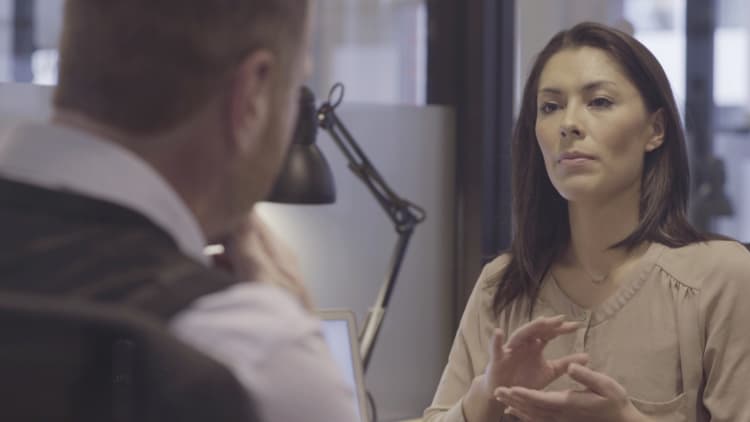Erin Lowry earns close to $100,000 a year. Her book, "Broke Millennial," which is based on her blog of the same name, is set to drop in May. And, she says, her success is owed in large part to the critical foundation her parents laid for her and how she learned to think about money.
When Lowry's parents took her to the store, she was asked to pay for a portion of anything she wanted to buy. "My parents could have paid in full, but they felt we should have skin in the game, would value more if we paid for it," she tells CNBC.
That was the reason that she was expected to pay half of her tuition when she attended college and why she chose a school that covered the cost in scholarships.
Still, people frequently questioned her choice to double major in Theater and Journalism, she says, asking her, "What makes you think you're going to make it?"
"Well, someone has to make it," she responded to one particular challenger. "So, why not me?"
Because she knew how much it would cost to live in New York City, Lowry saved throughout college and moved to an outer-borough apartment in Queens after graduating debt-free.
"In college specifically, I made sure to avoid credit card debt and always paid my bill in full," Lowry says. "I saved 50 percent of every paycheck I received through my various jobs so I could graduate college with a healthy nest egg."
In NYC, Lowry also had to make trade-offs. While interning for CBS' "The Late Show with David Letterman," she worked as a Starbucks barista and a babysitter to make ends meet.
Lowry is now succeeding on her own terms. And, as part of the Council for Economic Education's #MySavingsTip campaign, she shares her top four pieces of advice.
1. Take responsibility
Educate yourself, says Lowry. If you don't learn in advance, she says, "You will screw up and [have to] learn for yourself."
Because financial literacy is not part of a regular school curriculum, the best time to take matters into your own hands is early on.

If textbooks are not for you, there are resources available for all kinds of learners. Lowry uses her blog to educate her readers through personable stories about how she applies money lessons every day.
"Find out what speaks to you, start with a blog, or switch to podcast," she suggests.
If you don't know any book or podcast titles off the top of your head, Reddit "is a treasure trove," where users do a good job of policing resources.
2. Learn to negotiate
One of the best negotiators Lowry knows is her father. So when she realized she was being underpaid for her role at a previous job, the blogger knew exactly where to turn. She began simulating negotiations with her dad via FaceTime. Then she got a raise in salary from $50,000 to $70,000.
"It's an undervalued part of the [job] process people don't practice," she says.

Negotiations don't have to happen exclusively at work. You can try to bargain with your phone service or Internet provider. It's a good way to practice since you could save more money, and if you don't do well, there's not much to lose.
For starters, she recommends following personal finance guru Ramit Sethi, who says he grew up learning that negotiating is part of the process of making a purchase.
3. Minimize your cost of living
Lowry describes her apartment's look as "recently robbed chic."
The personal finance blogger says she has always been frugal with her spending, only splurging on her dog and maintaining a minimalist lifestyle.

She suggests paying attention on how you spend money day to day. Especially in New York City, "your big cost is going to be living," she says. That's the first place that you can look to first to cut down on spending. Because Lowry wanted to minimize the rent she pays monthly, she's decided not live in Manhattan, which is home to some of the region's priciest apartments. Here, average rent for a two-bedroom is $3,692 per month.
4. Focus on what's really important
Be wary of how much you are spending to eat and be social. For food, don't make Seamless a habit when you can be deliberate about how shop for groceries.
And when it comes to meeting with friends, don't say yes to all your invitations to go out to expensive dinners.
"Narrow down on what you value and want," she says. "Don't let others dictate your values for you."



